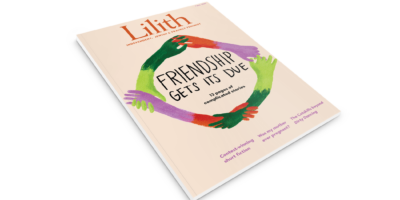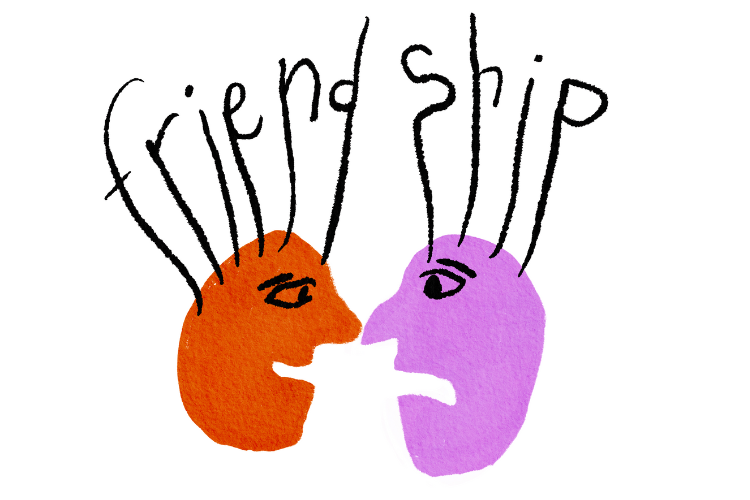
ART: REBECCA KATZ
Giving Friendship Its Due
Friendship is universal—nearly everyone has experienced a platonic relationship built from kinship, shared values, and joy—and yet, in the Western world, it often falls to the bottom of the list of “important relationships” as we age, and many of us shift our focus to romantic relationships and caring for our families.
But my friends are the people who have picked me up after heartbreak, made me laugh endlessly, shaped my taste in pop culture, taught me about frustration and forgiveness, borne witness to each iteration of myself as I’ve grown up—and have grown up alongside me.
The Lilith team wanted to highlight the common and the unique beauty and struggles of friendship (with a Jewish feminist twist, of course) so we asked you, our readers, to tell us your stories. Here’s what you shared.
—ARIELLE SILVER-WILLNER
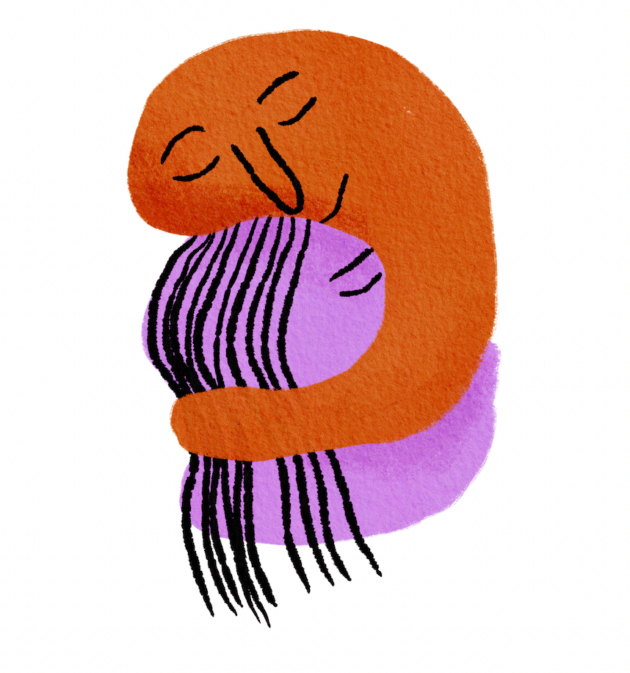
My Mom’s Best Friend
by Gabriella Goldstein
I think I’m only 11. I know I haven’t had my Bat Mitzvah yet. We are out in the yard. My mom’s tears have intertwined with the sweat that has found comfort resting in her lines. My mom is apologizing about a fight she had with my stepdad. Avra, my mom’s best friend, simply shakes her head in means of understanding and embraces my mom to her chest. This dance feels so familiar. My mother cradles my head this way when I get home from school, upset from a disagreement with friends or a poor grade on a test. But they are adults. I question why they feel the same sprouts of sadness that hold my stomach in knots when I am upset.
I am 20 now and my Bat Mitzvah feels distant, perhaps because I still pose the same questions I sat in the July heat wondering about at 11. I live in New York now, and I still cry. I am 20, and sadness hasn’t left me, as I thought it would as a child. But my tears are those of my mom and her best friend’s, and they are the comfort that lends itself in my knowing that sadness doesn’t leave but becomes more a wave, one not of age, but of peace, once embraced.
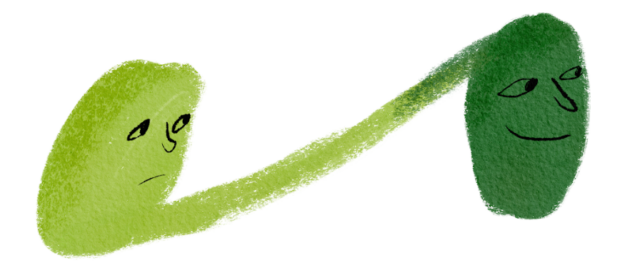
She Was Somewhere Else
by Anonymous
Not this one. I don’t want to do this one with you!’ We’d done so much at the same time: quadrangle blushes over detailed recounting of kisses, screaming and carefree in dance clubs, lazing and laughing in our lounges and bedrooms. We shared an eerie connectedness made concrete by repeatedly arriving in surprisingly similar outfits, our first shared house, of course, was together, somehow got married months apart, bought houses two streets away. I cuddled her son at his bris days before welcoming my own little boy.
Safe, secure. A little gang of two, surrounded by bigger groups of friends, surrounded by the world. But always us two. Now she was splitting from her husband not long after I split from mine. Too much togetherness? Did she spiral? Yes, she spiraled. Retreated into her new hippie world. Drifted like a cloud. Away from me.
Lying in the Emergency Department while my heart suffered, I yearned for her. I texted ‘This is harder than my marriage ending.’ Pretty words of devotion pinged back, but she was somewhere else. She dissolved like a ballerina throwing kisses, while disappearing into the darkness of stage left.
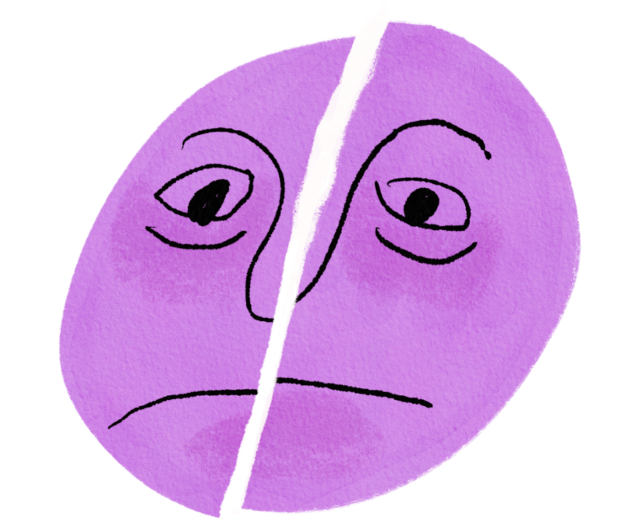
Ten Years Worth of Cards, One Text
by Sophia Maimon
She was an artist. She penned seductive sympathies and affections on postcards she delicately illustrated with pictures of our adventures. I received them for graduations, hospital visits, birthdays, and just because. Ten years’ worth of cards littered my desk. Postcards meant to compensate for offhand insults, stolen boyfriends, and broken promises. Postcards I gratefully accepted because they made it easier to forgive her.
But when she decided I was no longer a worthy recipient, I merely received a text. There were no cards left to write. I was too sensitive, she said. Too dramatic. Too consumed with the past. Ten years of cards did not equate to ten years of apologies on her end, nor ten years of forgiveness on mine. The final text was beautifully written. I expected nothing less. She knew me well, and every word within the blue bubble corresponded with every doubt I had about myself. Her conclusion: she had outgrown me. When I came home, I hid all the cards she ever sent me. I am not sure where I put them. I still cannot find them.
That Yom Kippur I did not forgive her. I spent the year drowning tissues in tears and snot. Today, all I remember is how elegantly she wrote that final text.
Lately, I’ve Been Investing in Smaller Acts
by Rebecca Hoving
Everything I know about the language of love, I learned from my friends. Annabelle brings me groceries when I’m sick. Katie sends me cookies when I can’t fathom leaving the couch. Ellie texts me every morning and night after my break-up, because she knows that’s when I feel his absence most. When the bad days keep coming, so do the voicemails and the bodega flowers and the coconut water because I have a headache and Alice reminds me to hydrate.
When I went to Sunday school (at the Humanistic Congregation held at my middle school cafeteria, not at the decadent Conservative synagogue at the center of town), they told us to repair the world. They called it Tikun Olam, and I think of all the ways in which the world desperately needs repair: our climate in shambles as a smog settles over the city, the line that stretches outside the food bank on Avenue B, the slurs graffitied over Pride Parade fliers. To remedy any one of these renders me paralyzed, so I read more articles and repost mutual aid funds and wonder if I should go to law school.
Lately, I’ve been investing in smaller acts. I bring yellow flowers to Julie and ask Katie how her doctor’s appointment went and tell Chloe I’m thinking of her. I may not be solving the next big crisis, but in the love I give and receive, I can’t help but feel that my world is being repaired.
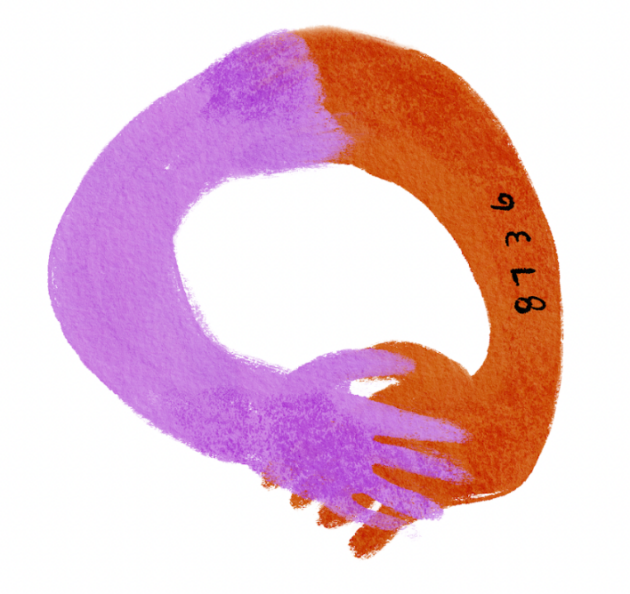
She Raised Her Eyebrows in Delight
by Jodi Rosenfeld
Two months before her death, Eda and I sat at her kitchen table giggling about her new visiting nurse whose name she couldn’t remember but who, in her thick German accent, she called, “Sexy man.” “He’s a hottie, huh?” I asked in the vernacular of my generation. At 90, Eda liked to talk about men and sex more than anything else. She even flirted with my husband. Her knotted finger wagged, “You should be home cooking dinner for your husband, not studying all the time!”
“But, Eda, I’m studying to be a rabbi.” I thought somehow this made it different.
“Women rabbis!” She rolled her eyes, pronouncing “women” with a V.
On one of her final days, I sat on the edge of her hospital bed, holding her hand, the index finger of my other hand lightly tracing the numbers on her forearm. “Could I give you a blessing?” I asked, ready for the weaker but ever sassy eyeroll. To my surprise, she nodded yes.
I looked into her eyes and put my hand on her head. “May you be blessed with peace and with the knowledge that you are surrounded by love and are completely safe. And may you be escorted to the World to Come by an assembly of angels in the guise of so many sexy men.” She raised her eyebrows in delight, and I missed her already.
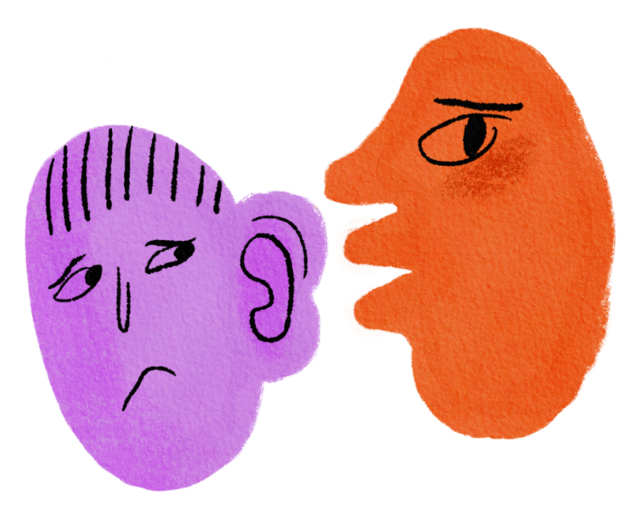
I Betrayed Her Trust
by Molly Monger
I met Alya in a break room during my first year of my degree, but I really met her when she sat with me in the doctor’s waiting room offering ginger cake to the other patients. These acts of kindness and generosity—the offer of cake to strangers, and the offer of support to me (a near stranger) in accompanying me to the GP—made it seem like light was shining off her; I instantly knew I wanted to be her friend.
Throughout the following months, we became inseparable. I was a listening ear through the ups and downs of her relationship, she was a listening ear for my evolving relation- ship with God and Jewishness. We spoke for hours when we were away from each other. In one of her darkest periods of mental health, I was the only one she told, and I was there daily to make sure she ate and got sunlight.
Then I betrayed her trust, and I lied to her about it. I told some mutual friends a secret that was private to her, and I pretended that I hadn’t when she asked—she saw through it. I was so scared of losing her. We didn’t talk for weeks. I wrote to her before Yom Kippur to ask for her forgiveness. She thought I was cutting her off.
She said she forgave me; I don’t think she did. I don’t know if I can either.
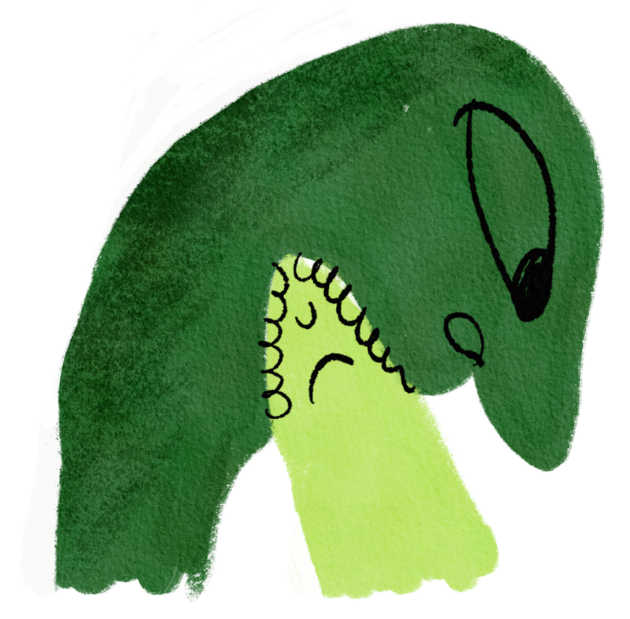
Finally, Delight in Being Jewish
by Sarah Garfinkel
When you’re the only Jewish kid in your elementary school class, you learn to manage your Jewishness to fit in and make friends. In choir, you spend every fall rehearsing for the Christmas concert. You try to display a grateful smile during The Dreidel Song. You dread matzah PB&J lunches, attempting furtive bites to avoid questions. Unfortunately, it’s not the most inconspicuous food.
In middle and high school, you learn to assure new friends, “I’m not that religious.” Each High Holiday presents a dilemma: attend synagogue or attend school?
Then comes college.
I joined a group of fellow “I’d never join a sorority” women in a Jewish-interest sorority.
Finally, I embraced—and even delighted in—being Jewish. Our policy was “everyone is welcome” and our unofficial motto was “let us feed you.” Some members were observant, some culturally Jewish or not at all; our Catholic president went kosher for lent. Our song, “Ruth’s Song,” defied conventions—despite lacking any decipherable melody, we belted it with gusto. Ours was a sisterhood of friendship, inclusion, and endless desserts.
Finding comfort in this community made me realize that my prior relationship to Judaism centered on making others comfortable. This previously packaged piece of my identity became the thread connecting me to my closest friends. And though I still avoid matzah PB&Js, I’d share one anytime with them.
It Was a Healing Vessel All Along
by Gabrielle Ariella Kaplan-Mayer
In the chalky, upstairs second grade classroom where Sunday School was held, I would sit by myself during recess. Dressed in a jumper, white socks and Mary Janes, I’d flip through A Child’s Introduction to Torah while the boys climbed out the classroom’s window and ran around on the Temple’s flat roof.
One day, another girl arrived: her name was Joellyn. She liked to read and make up stories like I did, so from then on we wove our own tales during break time until the teacher returned. After class, we played at each other’s homes. We were the only Jewish kids in our small Central Pennsylvania elementary school. We grew up like sisters connected by soul, not blood. Her mom would say, ‘You two come in a package.’
That package held our secret yearnings and discoveries: we stole Judy Blume books from my older sister’s room, drank our parents’ liquor. Through the years, the package came to hold our first loves and heartbreaks, studies and dreams, angst, illness and griefs. Our shared stories sewn together through long distance phone calls, flights across the country to fall back into that same conversation that we never stopped. Now in our 50s, the package expands through texts and intuition. We see: it was a healing vessel all along. I wouldn’t be me without you. What is the word for this friendship? For this love?
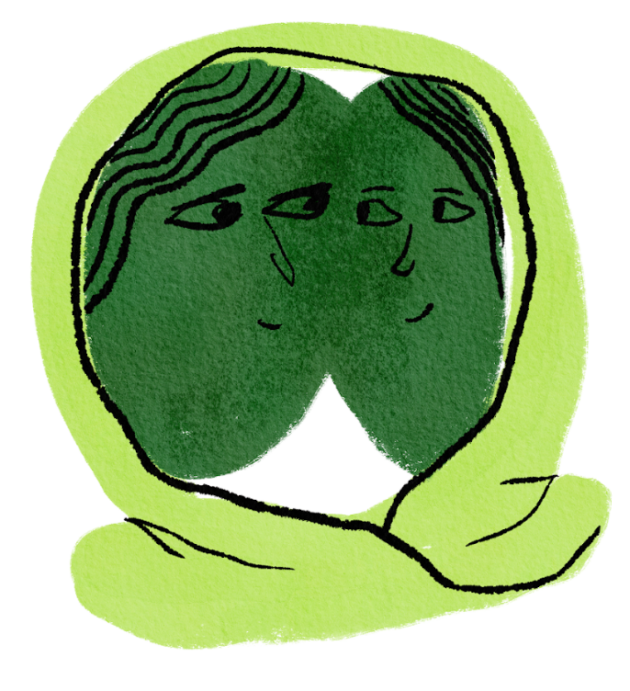
The Older Sister I Never Had
by Astera Marcos
Sisterhood in Sefardí culture is a crucial element to the ways of life and rituals, it frames an important part of the spiritual components to a woman’s life. Aljohar came into my life about two years ago, when I was a meek teenager looking to deepen my relationship with God while still maintaining my feminism and politics. In many ways, she became the embodiment of the older sister I never had, guiding me not only emotionally but also spiritually.
Growing up Sephardic and separated from the community is something that has unified us and intensified our friendship. We’ve been able to find the community in ourselves that was never offered before. I’ve also reconnected deeply with Ladino, so much so that we now co-run her language preservation project: Ladino Uprising.
Aljohar has helped me maintain a steady faith, something we both struggle. She also brought the feminine wisdom I needed to hear in my late teenage years, it’s helped shape me into a stronger person.
There’s a sort of ancestral connection that we’ve both expressed feeling towards each other. One that makes us want to lie under the trees, peeling oranges and pomegranates, our hands decorated with traditional Sefardí henna, and our hair covered with elaborate cloths. We hope to send each other letters in Ladino, so that historians can one day look back on the love between these two Sephardic women. A love for sisterhood, God, and language.
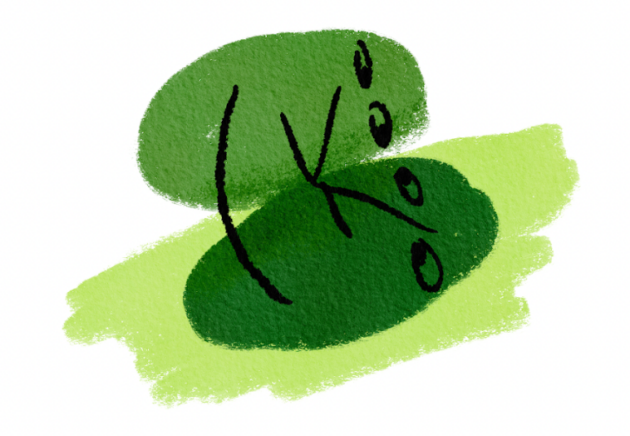
My Shamash
by Eli Burr
After immersing myself in the Mikveh, one of the rabbis of my Beit Din left me with a message that I still think about today. He likened my Jewish soul to a shamash, a helper candle. He said that each soul has a unique light that we cast in the world to ignite the souls of others.
My best friend, Floyd, is a shamash for me.
Our childhood upbringings are significantly different. I grew up in a low-income, conservative family who voted for Trump twice. Floyd grew up in a middle-class family with two gay dads. I was jealous of him, yet curious. The more our friendship grew, the more he shared about his Jewish upbringing and culture. I learned about the discrimination Jewish people like him face, especially queer Jewish people. Even as I spouted stereotypes, he managed to retain composure and corrected me like a true mensch. Gradually, my ingrained biases were shattered, and he sparked in me a desire to live Jewishly.
After emerging from the living waters, I had no idea how to thank him. I still don’t. This is why I return to the concept of the shamash. Just as Floyd showed up for me, my hope is to give that gift to others.
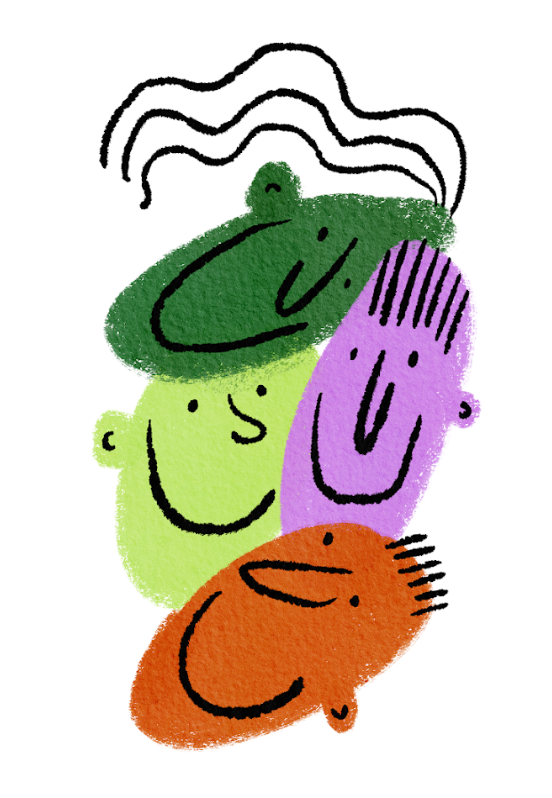
My Housemates, My Heart
by Alexa Hulse
After I moved into a speciality house during my first year at a historically women’s college, I realized that besides being creative people with an appreciation for the arts there is something else that binds me and my fifteen housemates together—our queerness.
I came out as a lesbian three days after arriving at college (and that isn’t even an exaggeration). I had repressed my queerness for years and part of this was rooted in the fact that I could count the number of out women I knew in high school on one hand. When I moved into my new home I was surrounded by queerness on all sides, literally; for the first time in my life I met people who identified as lesbian, who expressed femininity and masculinity outside of patriarchal standards, and most importantly, who were happy and proud of it. I’ve always learned about myself through my relationships (I’m a gemini, after all) and being able to exist queerly in my platonic connections opened the door to me expressing my queerness, loudly and with pride, in all areas of my life.
Not many of my housemates are Jewish (one of the cons of going to a small school in the south) but our queerness often acts as a bridge that allows us to connect across our differences. I make latkes for my housemates for our holiday dinner and my housemates often show up to Jewish Students Alliance events to show their support. It isn’t the chipping walls or screaming radiators (perks of living in a 200 year old building) that have kept me in the space all this time, it’s the people. These friends remind me every day that yes, friendship is in the big things like supporting each other through identity crises and massive transformation, but it is in the little things too. Sometimes the best part of my day is talking to one of my housemates as I wash my face in the morning or swapping hookup stories on the porch the day after a party. I wouldn’t be the person I am today without this shitty house and all of the beautiful, magical, queer people who live there.
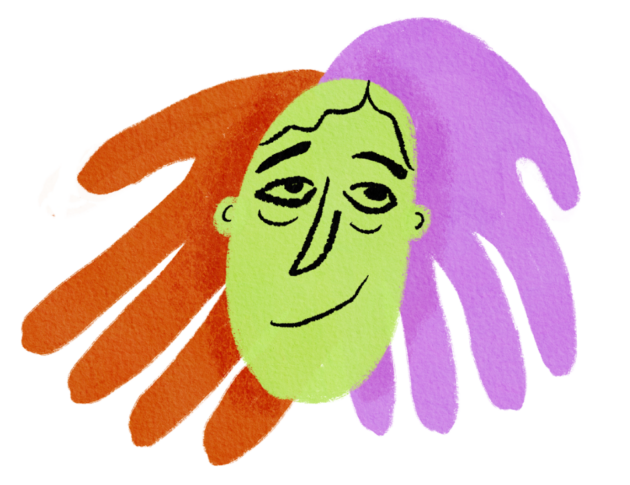
Our Friend Sylvia
by Jenna Rose & Emily Green, with Sylvia Lustgarten
*The subject (Sylvia) passed away while this piece was being written
We met Sylvia at a Jewish conference in 2014. We were eager to learn, and we were drawn to her passionate and quirky presence. As queer Jews in our late 20s, we were thrilled to meet an elder like Sylvia. She invited us into her home beautified with art she made from recycled objects, hundreds of her paintings, political campaign materials, and bookcases overflowing with Yiddish literature.
For almost a decade, we got together every few weeks to read Yiddish around her kitchen table, nosh, and share in each others’ lives. We got into fiery debates about current affairs, and our sometimes divergent worldviews. We studied Yiddish (and socialist propaganda) from vintage Workman’s Circle children’s textbooks. Sylvia brought to life her vibrant, secular Yiddish culture, and we shared about our activism, queer polyamorous dating, and spiritual pursuits. Sylvia always listened with kind presence and fierce allyship.
For years, we broke the fast at her home on Yom Kippur, dipped apples in honey on Rosh Hashanah, and ate Chinese food together on Christmas Eve. When people mistook us for her grand- daughters, she corrected them and said we’re her friends.
Sylvia modeled a possibility for an elderly way of being that is passionate, creative, committed to lifelong learning, pursuing justice, and building community. We were mutually blessed to call each other friends, comrades and chaverim.
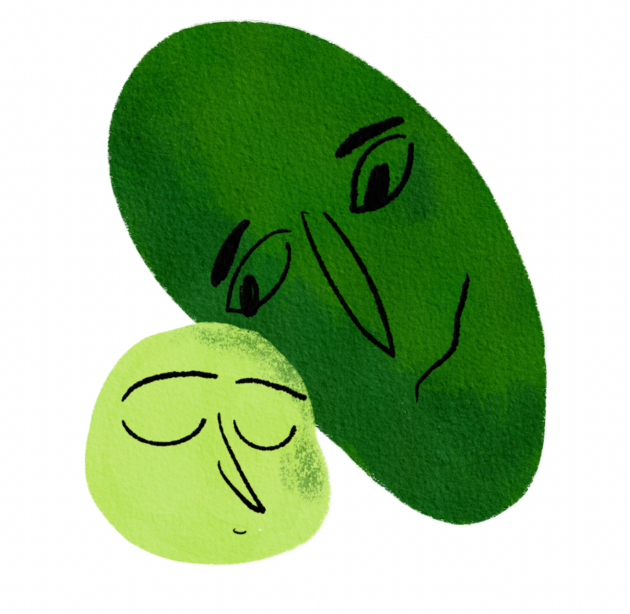
Our Shared Grief, Our Holiday
by Logan Zinman Gerber
A scant year after our friendship began, I called Pam to tell her I couldn’t join her at a huge work event we’d been planning since we met. My dad, who had been undergoing cancer treatment for the fifth time, chose hospice care when his cancer finally advanced faster than modern medicine.
He died on February 13th. Pam’s dad’s yartzeit is February 14th. She knew so acutely what I was going through, and felt helpless to shield me from the waves of pain. I knew if she could literally put herself, all 4’7″ of her, in front of those swells of grief she would have.
What she could do was be my buoy. She invented a holiday for us (Yom Pogan, the day of Pam and Logan) on February 15th, so we had a glimmer of joy to look forward to after our now double-yartzeit. We celebrate with unlimited iced coffee, quality time, and homegoods with our faces on them that are often so ugly I hide them when company is over.
Someday we will have our own travel show (a perfect mix between Anthony Bourdain’s No Reservations and that episode of Oprah where Oprah and Gayle go camping). We will be adorable and winning and you will experience our joy in being together through your screen. What you won’t see, but maybe those of you with Daddy issues will feel, are the roots of that joy in grief. It’s dirty and messy—and it can also grow something beautiful.

